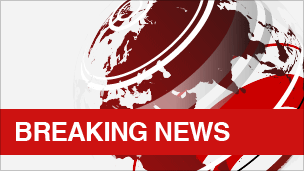Ab-Titchaz
JF-Expert Member
- Jan 30, 2008
- 14,631
- 4,225
Nigeria gunmen in Mubi 'target Igbos'

At least 10 people have been killed by masked gunmen who targeted a town hall in Mubi in north-eastern Nigeria.
Residents in Mubi told the BBC those killed were from the Igbo community from the south of the country.
They had been meeting to organise how to transport the body of an Igbo man shot dead by gunmen on motorbikes on Thursday evening.
Mubi is in Adamawa state which borders Borno state, where radical Islamist militants began an insurgency in 2010.
Last month, the president declared a state of emergency in Yobe and Borno states in the north-east, Plateau state in central Nigeria and Niger state in the west following a surge in ethnic and sectarian violence.
The police blame much of the violence on the Islamist Boko Haram group, which wants to impose strict Sharia law across Nigeria.

At least 10 people have been killed by masked gunmen who targeted a town hall in Mubi in north-eastern Nigeria.
Residents in Mubi told the BBC those killed were from the Igbo community from the south of the country.
They had been meeting to organise how to transport the body of an Igbo man shot dead by gunmen on motorbikes on Thursday evening.
Mubi is in Adamawa state which borders Borno state, where radical Islamist militants began an insurgency in 2010.
Last month, the president declared a state of emergency in Yobe and Borno states in the north-east, Plateau state in central Nigeria and Niger state in the west following a surge in ethnic and sectarian violence.
The police blame much of the violence on the Islamist Boko Haram group, which wants to impose strict Sharia law across Nigeria.
